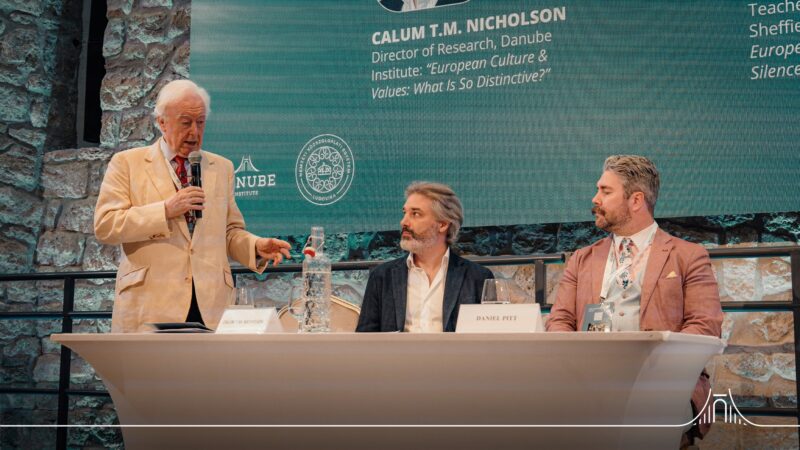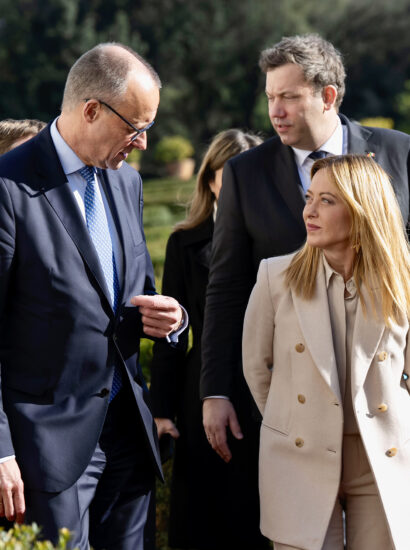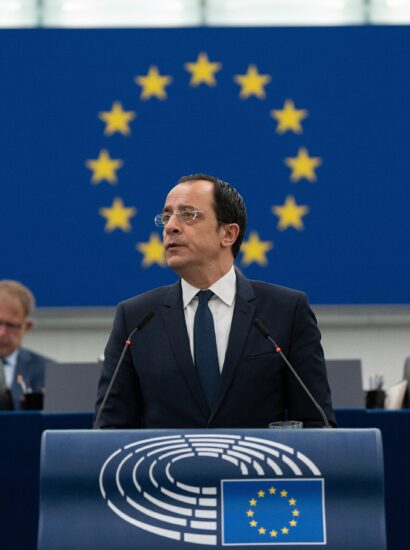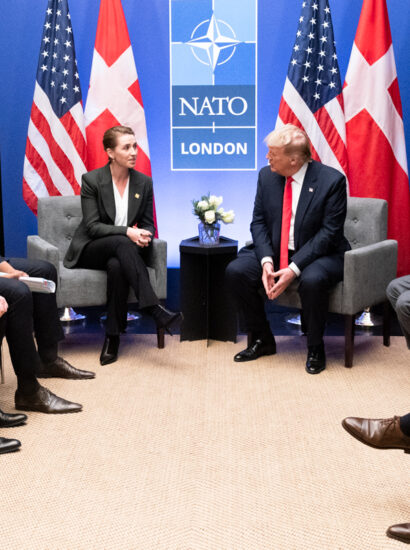Free Speech and Freedom of Thought: British and European Conservative Visions of the Future of Europe was the latest in a row of annually organized academic conferences staged by the Danube Institute, a Hungarian conservative think tank about the future of Europe. Last year the event took place at Churchill College, Cambridge, and now they are back in Budapest. Among the participants were British, European and American scholars and public intellectuals.
The Western world finds itself in a crisis. The culture war, initiated by extreme leftist movements, including Woke, the migration crisis, the lack of adequate energy supply, and threats of global nuclear war all require strong and dedicated leadership in Europe and the Anglo World.
Conservative intellectuals are often criticized for turning nostalgically towards the past without much thought about the present and even less about the future. This is the time to organize a conference in our British conservatism series about the future of Europe – from different British and continental conservative perspectives.
The UK Elections: Conservative Parties Having Turned to the Left are Less Successful
In the introduction, John O’Sullivan, president of the Danube Institute think tank, talked about two fundamental things in conservatism and things that have affected the European elections. The first thing he refers to is green policies, which he calls “madness”, but admits that as conservatives, one should have “friendly policies” towards the environment, as nature conservation is a conservative thing.
“Having a healthy environment is a very conservative value. But, it shouldn’t go towards madness because I really see these green policies as basically almost like the communist five year plans.”
The second thing O’Sullivan pointed out is the importance of the Conservatives (ECR and ID) in the European elections. He talks about the possibility of a coalition between the center-right and right-wing forces, but that it will have to be seen, as it is not a simple thing at all.
“If I would be the leader of the EPP, I would favor closer policies towards the ECR and the ID, but sadly, I am not the leader of the EPP”.
Finally, he concluded by saying that he was optimistic about the growth of conservative parties in Europe, and said that the parties that have gone most to the center are the ones that have been penalized the most, and that we will see this example in the British elections that will take place next July 4, 2024.
The Importance of True European Values and Insight Into the British Conservative Party
Calum T.M. Nicholson, Director of Research at Danube Institute, talks about European values in a different way than other people do when they talk about them, because he introduces a new factor. Nicholson comments that even though many of us may not go to church, or even though our family may not have been Christian, we are “cultural Christians” since everything that emanates from our countries, our laws, our moral system is Christian.
Nicholson comments that one of the most important features of Christianity is the image of Christ on the cross, a counter-intuitive revolutionary image, since normally the emissary of God in other religions is seen as someone powerful, like a king, but here, however, it is the opposite.
“In a sense, it is an image that is the negation of power. And in essence, it’s quite revolutionary. I think that negation of power, that flipping of the script, is quite central to the Christian story.”
He finds this denial of power to be the key figure in European thought and how this has led to its diversification into other aspects of European society. He talks about this when he refers to politics and the revolutionary of democracy.
“The revolutionary thing about democracy is the negation of power: the power to remove someone,” he adds.
Finally, he says that the same is the case with freedom of expression, which is not so much that we can say what we want, but that we can say what we want without the state censoring us. Which would be, again, the denial of power.
Daniel Pitt, Teachers Associate at University of Sheffield, spoke in his lecture about the history of the UK Conservative Party and the Tories’ views on various issues.
In his lecture, Pitt talked about different positions of the Tories in different areas and reviewed their history. In the upcoming elections to be held in the United Kingdom, all the polls reflect a big fall of the Conservative Party and the emergence of Reform UK, Nigel Farage’s party as something halfway serious.
On what Farage has to contribute to British conservatism, Pitt told The Long Brief, “I think [Farage]’s got disruption to offer. He wants to disrupt the center-right in British politics. The main thing he’s got to offer is to pull the conservative party back into a conservative position”.
The Danger of Liberalism and the Importance of Bringing Back Old Europe
Phillip Blond, Director of ResPublica, addresses the crisis and limitations of contemporary liberal democracy, arguing that the alliance between democracy and liberalism is inherently problematic and is leading to a decline of democracy as the dominant form of government.
Blond talks about how liberal ideas have influenced conservative parties too much and that has to change. He sees how populism has been the answer to the drift of the conventional right.
The author also states that the nation-state concept is the concept that has done the most damage in Europe.
“The nation-state is the greatest political killing machine that we have had.”
According to him, democracy is most threatened not by totalitarianism but by liberalism, and that the fusion of liberalism with democracy is what most threatens democracy itself.
“The support for democracy in its current form and fusion is waning across the globe.”
Blond says that the expression liberal democracy joins together two terms as if they were complementary, when in fact they are contradictory.
Under this fusion of liberalism, democracy, the touchstone, is no longer the sovereignty of the people, but the sovereignty of the individual, defined by the ultimate possibility to counsel, if necessary, collective power.
“Liberalism puts democracy in crisis.”
He concludes that liberalism will cause democracy to cease to be a political system and that we will enter into different forms of government, perhaps more totalitarian.
Francesco Giubilei, President of Nation Futura & Fondazione Tatarella, approaches European identity from a cultural and historical perspective, defending the coexistence of national and European identity. He also stresses the importance of Christian roots and criticizes the homogenization and secularization imposed by centralized European institutions.
Francesco states that the Europe of the past has nothing to do with the Europe of today, even if we still have the essence, but he claims that the European institutions are completely useless and inefficient.
“The European Union is unable to make its voice heard, as was clearly demonstrated by the war in Ukraine and the situation in the Middle East.”
He says that the existence of a European identity cannot ignore the centrality of national identities that create differences between nations. Only by attributing the value that national identity deserves, can the characteristics of European identity be defined.
He ends by criticizing that European identity does not begin with the Enlightenment or after the French Revolution, but that European identity is created in classical times. He also ends by saying that Christianity cannot be separated from European identity.







